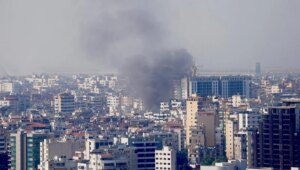
Lebanon, once known as the “Switzerland of the Middle East,” is now facing one of the worst economic collapses in modern history. The Lebanese pound has lost over 90% of its value, banks have frozen deposits, and more than half the population lives below the poverty line. Amid this turmoil, a powerful and often underappreciated force has been stepping in to help: the Lebanese diaspora. Scattered across the globe, these millions of Lebanese abroad are doing far more than just sending money—they’re holding the nation together.
Understanding the Lebanese Economic Crisis
Timeline of the Economic Collapse
The Lebanese economic crisis didn’t happen overnight. It began brewing over decades but exploded in 2019 when mass protests erupted against government corruption and economic inequality. By 2020, the crisis had spiraled: banks closed their doors to withdrawals, the Beirut port explosion devastated the capital, and inflation skyrocketed.
Key Causes of the Crisis
Corruption and Mismanagement
Lebanon’s political elite have long been accused of lining their pockets while neglecting the infrastructure and economy. Billions of dollars in international aid and loans were either misused or lost to corruption.
Political Instability
Lebanon’s sectarian-based political system leads to gridlock and inefficiency. Frequent changes in government and infighting among factions make it almost impossible to pass reforms.
Banking Sector Failure
The Lebanese banking sector operated like a Ponzi scheme for years, offering high interest rates to attract deposits while using those funds to lend to the government. When trust evaporated, the entire system imploded.
Impact on Lebanese Citizens
Unemployment and Poverty
Unemployment among youth exceeds 60%, and families struggle to afford food, medicine, and electricity.
Currency Devaluation
The Lebanese pound, once pegged at 1,500 to the dollar, now trades at over 90,000—if you can even find dollars.
Shortages of Basic Necessities
Fuel lines, medicine shortages, and power outages have become part of daily life.
The Lebanese Diaspora: Who Are They?
A Brief History of Lebanese Migration
Lebanese migration started in the late 1800s, spurred by economic hardship and war. Waves of emigrants left for Africa, the Americas, Europe, and the Gulf.
Geographic Distribution of the Diaspora
Lebanese communities exist in over 100 countries, with major populations in Brazil, the U.S., Canada, Australia, France, the Gulf, and West Africa.
Estimated Size and Wealth of the Diaspora
Though Lebanon has about 5 million residents, the diaspora is estimated at over 8 million. They often occupy well-paying jobs in medicine, tech, business, and law.
How the Diaspora Has Supported Lebanon
Financial Remittances
In 2022 alone, the Lebanese diaspora sent over $6 billion in remittances, according to World Bank data. These transfers are often the only stable source of income for many families.
Investments in Real Estate and Businesses
Despite the risks, many Lebanese abroad continue to invest in property, restaurants, and startups in Lebanon, hoping to create jobs and preserve ties to their homeland.
Charitable Donations and Aid
The diaspora has founded hundreds of NGOs and community organizations providing food boxes, scholarships, medical aid, and shelter.
Advocacy and Political Pressure Abroad
Diaspora groups are raising awareness about Lebanon’s plight in international forums, organizing protests, and lobbying foreign governments for sanctions on corrupt officials.
Real-Life Examples of Diaspora Contribution
NGOs and Diaspora-Led Relief Organizations
Groups like SEAL (Social & Economic Action for Lebanon), Impact Lebanon, and LIFE (Lebanese International Finance Executives) are diaspora-run and highly impactful.
Initiatives During the Beirut Port Explosion
After the 2020 blast, Lebanese abroad launched immediate relief drives, collecting millions in donations, medical supplies, and emergency aid within days.
Fundraising Through Social Media and Crowdfunding
Instagram fundraisers, GoFundMe campaigns, and virtual concerts have become powerful tools for channeling aid quickly and directly.
Challenges Facing the Diaspora’s Contribution
Corruption and Lack of Trust
Many Lebanese abroad hesitate to send money through government channels due to fears it will be wasted or stolen.
Restrictions on Money Transfers
Capital controls make it hard for people abroad to get money into Lebanon, especially at fair exchange rates.
Fear of Political Exploitation
Some fear their efforts will be co-opted by political parties or used for propaganda.
The Future: Empowering the Diaspora’s Role
Policy Recommendations
Lebanon must pass laws to guarantee transparency, empower NGOs, and build public-private partnerships that include diaspora investors.
Diaspora Bonds and Digital Banking
Introducing secure diaspora bonds or digital remittance platforms could streamline aid and make it more impactful.
Collaboration with International Agencies
Global institutions like the IMF, UNDP, and World Bank should work directly with diaspora groups for more effective distribution of aid.
Conclusion
The Lebanese diaspora is more than just a support system—it’s a lifeline. While Lebanon’s economy may be in shambles, its people abroad are proving that solidarity and love for their homeland can transcend borders. They’re feeding families, rebuilding homes, creating jobs, and offering hope. But to truly make a difference, their efforts must be matched by reform, transparency, and political will inside Lebanon. The country’s recovery won’t be possible without its sons and daughters abroad—and they deserve a real seat at the table.
FAQs
1. How much money does the Lebanese diaspora send annually?
Lebanese expatriates send approximately $6 to $7 billion per year, making Lebanon one of the top remittance-receiving countries relative to its GDP.
2. Can the diaspora solve Lebanon’s economic crisis?
While they provide critical support, the diaspora alone cannot fix systemic corruption and political dysfunction—government reform is essential.
3. What’s the most effective way for Lebanese abroad to help?
Supporting credible NGOs, investing in sustainable local businesses, and advocating internationally are among the most effective methods.
4. Are there any government programs supporting diaspora involvement?
There are limited initiatives, but more structured government partnerships with the diaspora are urgently needed.
5. How can someone in the diaspora contribute to rebuilding Lebanon?
Start by supporting grassroots organizations, using trusted remittance platforms, spreading awareness, and staying engaged politically.


















